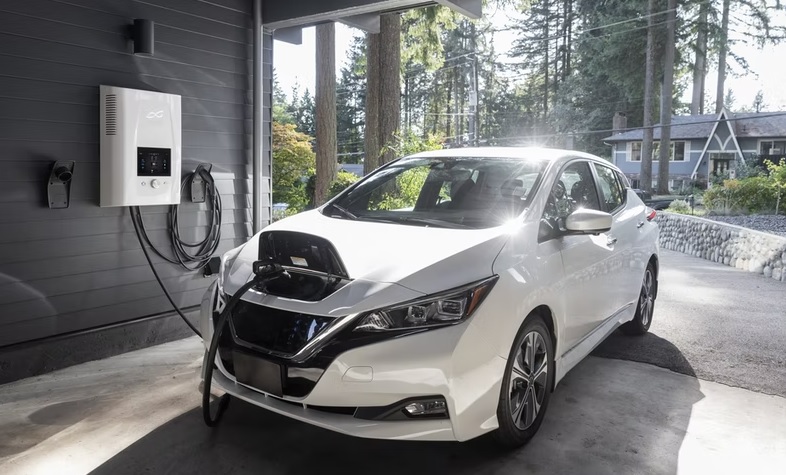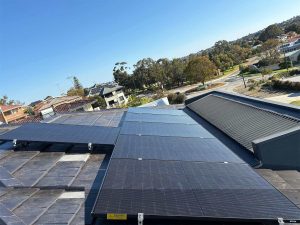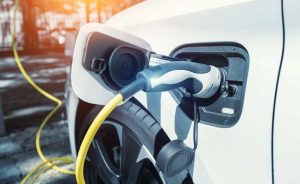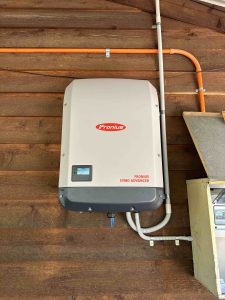According to the International Energy Agency, 37% of global CO2 emissions were accounted for by transportation. Driving an EV is not enough if you are planning to go green. The electricity with which it is charged should come from a clean energy source. However, there are some questions that you will have to work out before planning to install a rooftop solar system such as:
- How many solar panels do I need to charge an EV?
If you drive often, a simple Level 1 portable EV charger that runs on a 5kW solar system will do. For Level 2 EV chargers for home, issues of charging at night or on a cloudy day would persist. This can be fixed by installing smart EV chargers. You will need around an 8-panel rooftop solar system.
- Is it really practical to include an 8-panel rooftop solar system at home?
It is feasible only if you have a huge roof. But you may use a smaller panel to charge your solar battery which can later be used to charge your EV at night.
What Solar Package is Needed for Running an EV Charger at Home?
A new study published by the University of South Australia claims that EV owners that charge their battery with a rooftop solar system combined with a solar battery can reduce their fuel costs by up to 40%. The next question that comes to mind is how many solar panels we need to charge an EV.
Let us assume that an Australian travels 50-55 km a day. On average, an EV uses 30kWh to travel miles. It means that an EV uses 1 kWh of energy in 5.3 km. An EV would need 8-10 kWh of energy daily. Around 10% of the energy produced is lost in transition.
A 3-panel solar unit of 1kW capacity will produce 4kWh of energy daily on an average annually, considering it will produce less on cloudy days and more in summer. To make sure you have enough energy in winter, you will need additional panels of 2kWh capacity or you may need grid power.
Charge Your EV With Battery at Night
The Electric Vehicle Council and Tesla Owner’s Club of Australia surveyed Tesla owners and found that most of the owners charged their EVs during peak-off hours at night between 12 am to 2 am and day between 10 am to 2 pm.
Some of the users might think that they need their cars in the daytime and they only have after evening to charge them from home. This issue can be easily fixed by using energy stored solar EV charger.
Types of Residential EV Chargers Available in Australia
There are five levels of EV chargers available in the market namely, Level 1, Level 2, Level 3, Level 4, and Ultrafast Chargers. Only the first two can be installed at homes.
| Level of Charging | Power | Range Per Hour | Time to Charge | Can be Installed at Home |
| Level 1- Single Phase | 2.4-3.7 kW | 10-20 km | 5-16 Hours | Yes. These 10-15 Ampere plug-in chargers are portable. |
| Level 2- Three Phase | 7 kW | 30-45 km | 2-5 Hours | Yes and may be found on public premises as well. They are dedicated wall-mounted chargers with 5kW to 22kW capacity. |
Under Levels 1 and 2, four types of home EV chargers are available differentiating on phase and capacity.
1. Plug-in EV Charger
They can be used with a 10 Ampere wall socket and take 24- 36 hours to fully charge an EV battery. A dedicated 15 Ampere charger can also be used which can reduce charging time. Its price ranges anywhere between $ 450- $ 750.
2. Single Phase Wall Box EV Charger
A Level 2 wall-mounted Ev charger can come in a 30 Ampere rating with a 7.2kW capacity. With this, you will need only an hour of charging to go 50 km. It costs around $ 700 – $ 2500.
3. Three-Phase wall Box EV Charger
With a Level 2 three-phase box charger, you can fully charge your EV in less than 3 hours.
Cost of EV Charging in Australia
Traveling 450 km in a car can cost you $140 which is humongous as compared to EVs which will cost $ 35. It is still high if we compare it to EV charging at home.
Charging your EV at a public charging station is going to cost you around $ 0.45 to $ 0.60 per kWh and the prices are subject to go high in winter and at night when the demand is high. You might have to spend a lot of time, especially going to a charging station.
You may save the time spent on charging and save half the cost. It takes around $0.20 for charging an EV at home.
The cost of buying and installing a solar EV charger is negligible and a one-time investment. It also helps you to keep your conscience clean by using clean energy.








